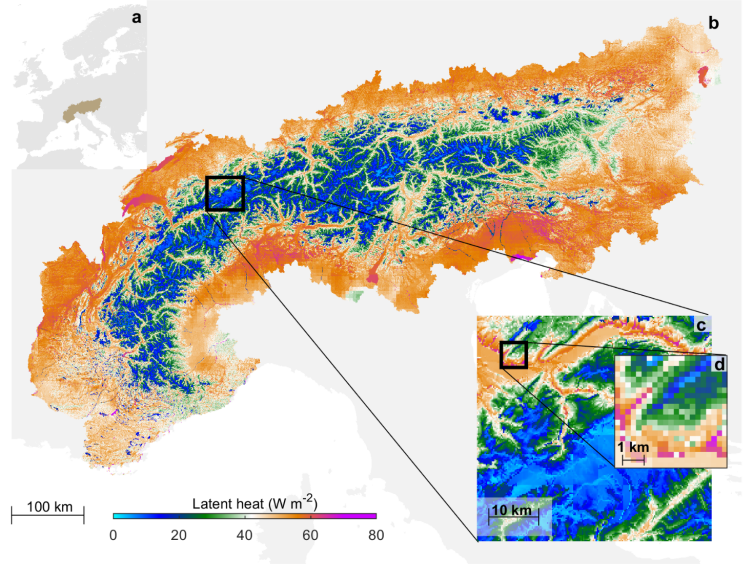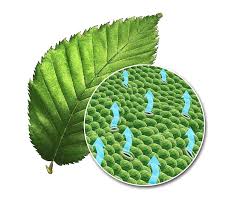Ecohydrology
Ecohydrology studies the feedback between the flow of water between atmosphere and soil and its use by the biosphere. We researched ecohydrological processes building up the energy, water, and carbon cycles in different environments. Special focus was devoted to two areas: (a) the simulation of ecohydrological processes to address questions of environmental change at large scales (e.g. the entire European Alps), and (b) the analysis of detailed plant-scale parameterisation effects in ecohydrological models and their meaning for hydrological ecosystem services at basin scales.
Alpine-scale ecohydrological simulation experiment

Large scale ecohydrological simulation which includes detailed descriptions of atmosphere-land-soil-vegetation processes allowed us to explore fundamental questions about the allocation of precipitation water to evapotranspiration (green water) and runoff (blue water). We conducted such analyses at the Alpine-scale to identify water stress regions during heatwaves, and make first order predictions of potential effects of climate change (precipitation and temperature changes) on hydrological processes at different elevations. This research required the use of super-computing facilities at ETH, and was highlighted in ETH News as a demonstration how mountain vegetation dries out rivers.
Projects:
ALPHSENS
Plant and catchment-scale ecohydrological sensitivity experiments

Ecohydrological models contain many parameters which are not always well constrained and their effects on the landscape hydrological balance and estimates of ecosystem services are not well known. In this research we addressed details of how plant trait parameterisations may affect water use efficiency, and how topographic heterogeneities affect energy balance, lateral flows, and ultimately plant water use and primary productivity. We also explored how these small-scale ecohydrological effects upscale to catchment scales and affect ecosystem services, for example in landuse change impact studies.
EcoHyd Lab - Investigating processes at the plant scale
Water fluxes within the soil-plant-atmosphere interface are mediated by plant physiologcal adaptations. These processes have been widely studied by biologists working in the field of plant physiology, however the connection between plant adaptive water use and classical hydrology has occurred only at a conceptual level, and cause-and-effect relationships are still poorly understood. The research conducted at the Ecohydrology Lab aimed to quantify water fluxes mediated by vegetation and microorganisms based on empirical and experimental data and state-of-the art numerical models. The Ecohydrology Lab continues its research activity under the leadership of Prof. Peter Molnar.
Projects:
WaldLab - Forest Field Site
Laboratory